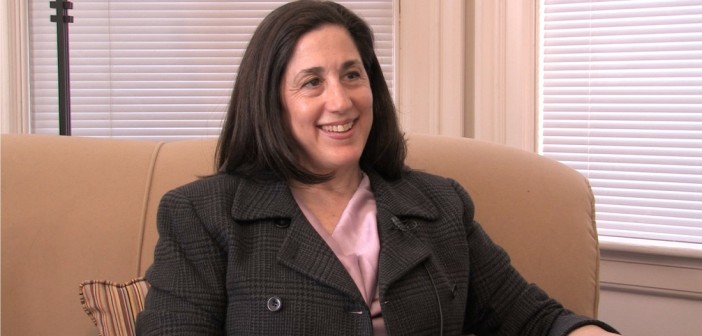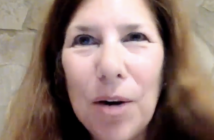Marjorie Whittaker, of The Whittaker Group, an accent modification company, was recently a guest on the Language of Business TV show’s episode #12, on Effective Business Communication. She’s offered the following commentary as a follow-up to her appearance.
Enjoy,
Greg
#1 How do your services differ from a specialized ESL curriculum?
Of course the two are related, and I view them as being on a continuum. ESL programs are generally more theoretical in nature, and focused on building the fundamental framework of listening, speaking, reading and writing. The classes are typically concerned with the basics of grammar, vocabulary, and spelling. Many students take these courses to pass college entrance examinations such as the TOEFL. There is a recent trend, which my company ESL RULES has advocated for a long time, to integrate pronunciation training into the curriculum. Unfortunately, for many of my clients, this wasn’t the case when they enrolled in ESL (English as a second language) or EFL (English as a foreign language) programs. In contrast, the programs I conduct with my executives, post-doc researchers, and other professionals are focused on the practical application of their knowledge, in order to communicate as effectively as possible in a variety of professional and social environments. Clear and understandable speech is vitally important to sell products or services, interact with patients and customers, pass oral licensing exams, etc. Of course, trying to apply the rules of spelling and grammar to speaking can have problematic results! That is why our specialized training is so important. Our accent modification programs are very practical in nature, and help people communicate successfully in the workplace by learning the “rules” of pronunciation that native English speakers take for granted.
#2 These books all seem to deal with language, but how about cultural communication styles?The RULES books are just one component of our training having to do with making a person’s speech more understandable. The accent piece focuses on accurate pronunciation of vowels and consonants, as well as the stress and intonation, or music of English. The RULES books and online pronunciation platform are just a vehicle to work on that particular skill area. In addition to that, we also spend time on topics such as facial expression, gestures, body language, speaking rate, voice projection, etc. There are often significant differences in the way people communicate non-verbally from one culture to another. In addition, we often have to address techniques for communicating effectively during meetings and presentations, video conferences, networking events, etc. I try to incorporate real-life scenarios into training as much as possible. For example, if someone is going to be presenting their research, we will discuss the terminology, review the slides, evaluate the content and presentation format, while incorporating speech techniques that we have addressed in other sessions.
Understanding and using figurative language and humor is also an area of concern for many clients.
In the book I co-wrote with Dr. Urano for Japanese medical researchers working in American labs or university settings, we have a number of chapters devoted to some of these topics including giving and accepting compliments, requesting assistance, speaking on the phone, etc.
We have to look at the whole person- not just the way they produce the sounds of the language, in order to enhance their effectiveness and confidence when communicating in English.
My clients are really good at asking questions about culture and work, and bringing real life situations to the session for discussion.
#3 What happens if a certain communication style is needed for their US job that runs counter to how they have been raised?
Again, awareness is key. Clients need to understand what is expected or considered acceptable in the US, and learn to adapt to succeed. Things like speaking about oneself can be very uncomfortable for someone from China or Japan. But, how can you have a successful job interview if you can’t talk about your accomplishments?
Others may have grown up in countries where you might be admonished for asking a question of a teacher, or making a mistake in public. It is very difficult to respond to an HR director when asked something like, “ What hiring mistakes have you made in the past, and what have you learned from them?”
Clients need to understand the American attitude about these things, and learn how to communicate in a way that is comfortable, yet appropriate. Discussions and role-plays are some good ways to deal with these differences.
#4 Do you specialize in specific nationalities?
I specialize in helping people from all nationalities and a wide variety of professions improve their communication skills. People come to The Whittaker Group from all over the world- South America, Europe, Russia, Asia. They have different levels of English proficiency, different attitudes about their communication, different degrees of exposure and comfort with American ways of communicating. Regardless of where my clients come from, they want to learn to speak in an understandable manner that is consistent with mainstream North American English communication styles. They really want to “fit in” with their peers and colleagues.
#5 English is easier to learn for some cultures than it is for others. How do you factor this in?
That is true, and why The Whittaker Group assesses each person individually, and then creates a customized program based on their needs, For some individuals, the cultural piece is a very big factor in learning how to communicate effectively in English, and for others our ways are not that dissimilar from their native communication style. The “music of English” can be a challenge for someone who grew up speaking a stress-timed vs. syllable timed language.
#6 There’s so much of an emphasis on spoken English, yet your books are very detailed. Why have you taken that approach?In our RULES approach, we have identified 23 stress and intonation rules that help our clients speak clearly and effectively. Not all of the units apply to everyone. The program is very comprehensive and detailed, so that sessions and independent practice can be productive and meaningful. We also have an online pronunciation platform that clients can use to practice their newly learned skills. Many of our clients work in high-tech industries- they like the logical approach and learning the rules of English pronunciation in a systematic manner.
The beauty of our RULES approach is that once a rule is learned, it can be easily integrated into everyday work and social communication. For example, learning that we stress or emphasize the last word in a proper noun, can help someone introduce themselves, accurately provide their address, give someone directions to their workplace, etc. It makes so much sense- and results are almost immediate!
#7 How does an executive change their communication skills if their approach is in conflict with the corporate culture?Effective communication shouldn’t be in conflict with the corporate culture. If someone has a style that is not working well for them, they need to explore how it is impacting the team, or the company, and how better results might be achieved. They really need to be open to modifying some of the behaviors, and adapting to their corporate environment. Role-playing, watching videos, audio/video recordings, and discussions are helpful in this way. Sometimes my clients from other countries need help learning how to interrupt someone in a meeting, or get their point across more concisely. It may be a matter of learning simple phrases that native speakers take for granted. For example, “Excuse me for interrupting, but I wanted to add something to what John said about supply chain distribution.” It is eye opening for many people- but all of these things can be modeled and learned. Sometimes clients need to learn how to be more or less direct, or to understand that the intonation patterns they are using (clipped/abrupt) may be perceived as impatient or rude to an American’s ear.
#8 Are you ever approached by US executives trying to do business in other cultures?Yes, with globalization, that is a relatively common request. It is helpful for executives to anticipate what types of communication breakdowns may occur, and he best ways to communicate with someone for whom English is not their first language.




